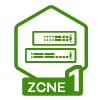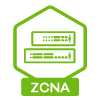Virtual Firewall for Nebula (vUSG FLEX / Nebula vFirewall)
 Freshman Member
Freshman Member
Use Case:
Many enterprise and SMB customers today operate in hybrid environments where part of their infrastructure resides in public cloud services such as Microsoft Azure, AWS, or Google Cloud Platform.
Competitors like Cisco (Meraki vMX), Fortinet (FortiGate VM), and Sophos (XG Firewall VM) already offer virtual firewall appliances that can be deployed directly in the cloud and managed through their respective management platforms.
This allows for secure, direct, and managed connectivity between on-premises networks and cloud environments — including ExpressRoute, IPsec, GRE, or BGP peering setups.
Current Limitation:
Zyxel currently does not offer a virtual equivalent of the USG FLEX H-series that can be deployed in the cloud.
This creates challenges when customers want to:
- Establish site-to-site tunnels between Nebula-managed locations and cloud environments.
- Integrate Nebula networks with Azure Virtual Networks or AWS VPCs using IPsec or GRE.
- Maintain centralized management and visibility for hybrid networks within Nebula Control Center.
The lack of a virtual firewall forces partners to either:
- Deploy physical firewalls in data centers or colocation (costly and impractical), or
- Use native cloud gateways with limited integration into Nebula (reduced visibility, inconsistent policies).
Suggested Solution:
Develop a virtual version of the USG FLEX H-series, for example named “Nebula vFirewall” or “vUSG FLEX”, that can be:
- Deployed as a virtual machine or container in Azure, AWS, and GCP.
- Fully registered and managed in Nebula Control Center, with the same interface and policy structure as physical devices.
- Support IPsec, GRE, and BGP routing, identical to on-prem USG FLEX models.
- Licensed per performance tier (e.g., 500 Mbps, 1 Gbps, 2.5 Gbps).
- Act as a hub in a hub-and-spoke topology for Nebula SD-WAN networks.
Customer Impact:
- Enables true hybrid cloud networking within the Nebula ecosystem.
- Simplifies secure and managed connectivity to Azure ExpressRoute, AWS Transit Gateway, and similar cloud services.
- Removes dependency on physical hardware for cloud deployments.
- Improves competitiveness versus Cisco Meraki, Fortinet, and Sophos.
- Adds significant value for MSPs and enterprise customers building multi-site Nebula environments.
Comments
-
Hi @MartinJ
Thanks for your input. We will monitor the commands and votes of this idea to evaluate.
Zyxel Melen1 -
Would love to see that happen, but might be out of Zyxel's target as they don't seem to target the same customers your example orgs are targeting.
We waited many years to still not get a 10Gbps UTM (700H is spec'd at 4Gbps). A virtual appliance was requested countless times over the years (before the Flex H series existed) and i've never see it appear in any roadmap.
One can only wish.
0
Categories
- All Categories
- 442 Beta Program
- 2.9K Nebula
- 217 Nebula Ideas
- 127 Nebula Status and Incidents
- 6.5K Security
- 583 USG FLEX H Series
- 344 Security Ideas
- 1.7K Switch
- 84 Switch Ideas
- 1.4K Wireless
- 52 Wireless Ideas
- 7K Consumer Product
- 297 Service & License
- 476 News and Release
- 91 Security Advisories
- 31 Education Center
- 10 [Campaign] Zyxel Network Detective
- 4.8K FAQ
- 34 Documents
- 87 About Community
- 102 Security Highlight
 Zyxel Employee
Zyxel Employee










